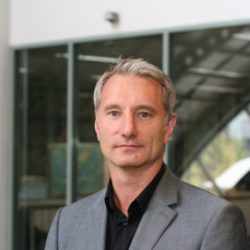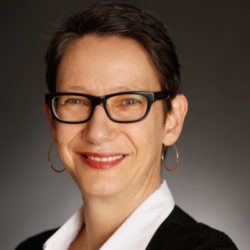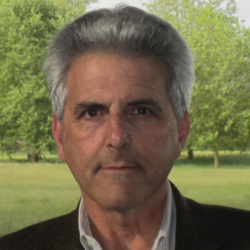Workshop Faculty

Chris Warhurst is co-organising the mini-conference The impact of global shifts on job quality. He is Professor of Work and Organisational Studies at the University of Sydney. His most recent co-edited work, the Oxford Handbook of Skills and Training, will be published in 2013. New co-authored books include Aesthetic Labour (Sage, 2012) and A Very Short, Fairly Interesting and Reasonably Cheap Book about Studying Work and Employment (Sage, 2013). His current research interest focuses on job quality. He is also co-editor, with Patricia Findlay, of Are Bad Jobs Inevitable? (Palgrave, 2012), with whom he co-organized the ESRC-funded seminar series ‘Making bad Jobs Better’ from which a public interest report will be launched. He has provided advisory work on employment to government in the UK, Scotland, Australia and Hungary as well as the OECD.

Annette Bernhardt is a senior researcher at the Institute for Research on Labor and Employment/Labor Center. She is also a fellow at the Roosevelt Institute, and recently was visiting professor in the UC Berkeley sociology department. Previously she was policy co-director of the National Employment Law Project, where she coordinated policy analysis and research support for campaigns around living wage jobs, enforcement of workers’ rights and accountable development. A leading scholar of low-wage work, Bernhardt has helped develop and analyze innovative policy responses to economic restructuring in the United States. She was one of the principal investigators of the landmark study Broken Laws, Unprotected Workers, which documented high rates of minimum wage, overtime, and other workplace violations in the low-wage labor market. She has also been a leader in collaborating with immigrant worker centers and unions to develop innovative models of community-based research. Her current research focuses on domestic outsourcing, the gig economy, and the impact of new technologies on low-wage work. Dr. Bernhardt’s most recent book is the co-edited The Gloves-Off Economy: Workplace Standards at the Bottom of America’s Labor Market. She has also published widely in journals such as the American Journal of Sociology, the American Sociological Review, and the Journal of Labor Economics, among others. Bernhardt received her Ph.D. in sociology from the University of Chicago in 1993.

Dorothee Bohle is a professor of Comparative Politics as the University of Vienna. Her research is at the intersection of comparative politics and political economy with a special focus on East Central Europe. She is the author of Capitalist Diversity on Europe’s Periphery (Cornell University Press 2012, together with Béla Greskovits), and of Europe’s New Periphery: Poland’s Transformation and Transnational Integration (in German, Münster 2002). Her publications have also appeared in Comparative Politics, Studies in Comparative International Development, West European Politics, Journal of Democracy, European Journal of Sociology, and Review of International Political Economy, among others. Her current work seeks to leverage insights from feminist political economy for comparative capitalism research. She has been involved in SASE activities for a number of years. She regularly presents her work in the networks E (Political Economy of Industrial Relations and Welfare States), and N (Finance and Society). From 2016 to 2022 she has been member of the Executive Council.

Neil Fligstein is the Class of 1939 Chancellor’s Professor in the Department of Sociology at the University of California. He has made research contributions to the fields of economic sociology, organizational theory, political sociology and social stratification. He is the author of eight books including The Transformation of Corporate Control (Harvard University Press, 1993), The Architecture of Markets(Princeton University Press 2001), Euroclash (Oxford University Press, 2008), A Theory of Fields (with Doug McAdam, Oxford University Press, 2012), and The Banks Did It (Harvard University Press, 2021). He is currently working on a project trying to understand corporate and governmental responses to climate change.

Angela Knox is an Associate Professor of Work and Organisational Studies at the University of Sydney Business School. Her research interests focus on job quality, precarious work and employment regulation and she has a particular interest in the tourism/hospitality industry. She has published widely including within the International Journal of Human Resource Management, Human Resource Management Journal, Work, Employment and Society, Gender, Work and Organisation and Journal of Industrial Relations. With Professor Warhurst, she co-founded the Job Quality Research Group at the University of Sydney Business School and co-edited a special issue of the Journal of Industrial Relations on job quality. Angela seeks to improve the quality of jobs in Australia through policy and research.

Glenn Morgan is Professor of Management in the School of Economics, Finance and Management, University of Bristol, UK. He has previously worked at Manchester Business School, Warwick Business School and Cardiff Business School. He has been a visiting professor at Copenhagen Business School and a number of other institutions in Europe and North America. He was President of SASE in 2014-15. His research interests lie in the areas of globalisation, financialization, institutions, multinationals, regulation and elites. As well as studies in Europe, he has written on East Asian and Latin American forms of capitalism. He has published in a wide range of journals including Organisation Studies, Human Relations, Economy and Society, Socio-Economic Review, Industrial Relations, Journal of European Public Policy. He was editor of the Journal Organization from 2005-2008 and serves on a number of editorial boards. Recent jointly edited collections Research in the Sociology of Organizations Vol.43 Elites on Trial (Emerald Publishing 2015), The Oxford Handbook of Sociology, Social Theory and Organisation Studies (Oxford UP 2014), New Spirits of Capitalism? Crises, Justifications and Dynamics (Oxford UP 2013) and Capitalisms and Capitalism in the Twenty-First Century (Oxford UP 2012).

Jacqueline O’Reilly is full Professor of Comparative HRM at the University of Sussex Business School and Co-Director for the ESRC £8 million investment in the Digital Futures at Work Research Centre (digit-research.org) (2020-24).
She is the UK lead on the Horizon 2020 EUROSHIP project on social protection in Europe (euroship-research.eu) (2020-23). Previously, she coordinated EU STYLE: Strategic Transitions for Youth Labour in Europe (www.style-research.eu) (2014-17) and was UK lead on the EU NEGOTIATE project (www.negotiate-research.eu) (2015-18).
Her most recent research focuses on the digital transformation of work, labour market policy and international comparisons of gender, ethnicity and labour market transitions across the life course.
She completed her doctorate at Nuffield College, University of Oxford on an Anglo-French comparison of employment practices in the banking sector. She worked for ten years at the Social Science Research Centre Berlin (WZB), Germany, and at Sciences Politiques in Paris, London, Manchester and Brighton Universities in the UK.
In 2000 she was awarded a Jean Monnet Research Fellowship at the European University Institute in Florence. She is a visiting research fellow at the Collegio Carlo Alberto, University of Turin, a member of the Scientific Advisory Board of Sciences Politiques, Paris, and Visiting Senior Research Fellow at the Wirthschafts- und Sozialwissenschaftes Institut (WSI), Dusseldorf.
She has served on the editorial board of the BJIR, Socio-Economic Review, and Work, Employment and Society where she was also Chair of the editorial board. She was elected twice to the Executive Council of SASE. In 2019 she was elected Fellow of the Academy of Social Sciences for her distinguished contribution to the field of interdisciplinary research.
She has been consulted by HM Treasury, Full Employment Team and the UK Cabinet Office Open Innovation Unit on equal pay and youth employment. She is an Evaluation Rapporteur for the European Commission Horizon 2020 research programme, was invited as an advisor to the ILO Work4Youth programme funded by The MasterCard Foundation, and was an evaluator on two occasions for the German Excellence Initiative of the Deutsche Forschungsgemeinschaft (€151 million investment).
She lives in Hove, UK with her two teenage sons where she enjoys living by the sea, watching Nordic Noir and discovering whether youth music today is better than that of the 1980s.
Researchgate.net: https://www.researchgate.net/profile/Jacqueline_Oreilly
ORCID ID: http://orcid.org/0000-0001-6223-154X

Roberto Pedersini is Associate Professor of Economic Sociology and Director of the interdepartmental research centre “WTW – Work, Training and Welfare” at the Università degli Studi di Milano. His main research interests concern labour market regulation and policies and industrial and employment relations. He has both participated and coordinated several research projects in these fields since the early 1990s at both national and international level. He has collaborated with the International Labour Office and collaborated as an expert with the European Commission and the European Foundation for the Improvement of Living and Working Conditions in several occasions. His recent publications include Economic crisis and the politics of public service employment relations in Italy and France (with Lorenzo Bordogna, in European Journal of Industrial Relations, vol. 19, no. 4, 2013), Coping with the crisis in Italy: Employment relations and social dialogue amidst the recession (with Marino Regini, ILO, 2013) and contributions to Sociology of Work. An Encyclopedia (V. Smith, ed., Sage Publications, 2013).

N: Finance and Society
Akos Rona-Tas is Professor of Sociology at the University of California, San Diego where he is also founding faculty of the Halicioğlu Data Science Institute. For many years, he was a senior research associate at INRA, Paris, and he was the President of SASE in 2018-2019.
He has written two books on market creation. Great Surprise of the Small Transformation: Demise of Communism and Rise of the Private Sector in Hungary, was published by Michigan University Press, the second one, co-authored with Alya Guseva, Plastic Money: Constructing Markets for Credit Cards in Eight Postcommunist Countries, by Stanford University Press.
He has published articles on the post-communist transition, on small entrepreneurs, consumer credit, and payment card markets in journals including the American Sociological Review, American Journal of Sociology, Theory and Society, Socio-Economic Review, Social Science Research, Research on Sociology of Organizations, Journal of Comparative Economics, Research in the Sociology of Work, as well as various chapters in edited volumes. He is currently working on the problem of rationality and uncertainty in two different contexts: credit assessment and the use of science in risk management.
Akos Rona-Tas has been a member of SASE since 2005. He is the co-founder and co-organizer of the Finance and Society Network, served on the Executive Council between 2012 and 2015, as Treasurer between 2015 and 2018, and as SASE President in 2018/19.